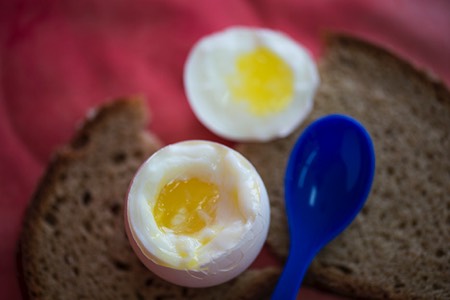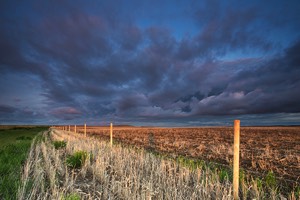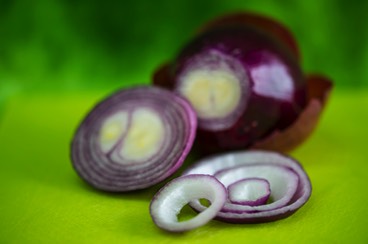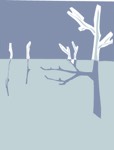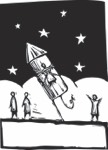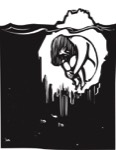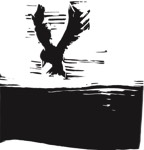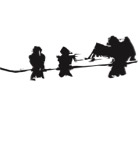Eggs
Your friend, who suffers from despair, sometimes composes a gratitude list that starts with the first letter of the alphabet. Her intention is to make it to the twenty-sixth, but she always stops at e. So far, that's sufficient. “E for eggs” gives her enough good feeling to turn on the light and find some shoes.
Your friend, who suffers from despair, sometimes composes a gratitude list that starts with the first letter of the alphabet. Her intention is to make it to the twenty-sixth, but she always stops at e. So far, that's sufficient. “E for eggs” gives her enough good feeling to turn on the light and find some shoes.
Zipper
3. They’re sexiest on the back of a dress a woman can’t do up on her own. She lifts the hair on her neck and arches her back while someone behind her slowly pulls the metal tag up over vertebra after vertebra to the top. Often, the next step is to pull the tag down. Zippers are most ugly on a pair of rubber overshoes, most pragmatic on the canvas door of a tent. To them, openness means incompleteness. Like Poirot and Holmes, they link the pieces, they sum up, the last clue falling into place with a perfect, tiny click.
3. They’re sexiest on the back of a dress a woman can’t do up on her own. She lifts the hair on her neck and arches her back while someone behind her slowly pulls the metal tag up over vertebra after vertebra to the top. Often, the next step is to pull the tag down. Zippers are most ugly on a pair of rubber overshoes, most pragmatic on the canvas door of a tent. To them, openness means incompleteness. Like Poirot and Holmes, they link the pieces, they sum up, the last clue falling into place with a perfect, tiny click.
Man from the Labyrinth
Where they got it wrong: they gave him virgins,
Terrified of course and weeping. What he wanted
Was a woman whose wisdom resides
In the sags and creases of the flesh. For a time
He rested his elegant head in my lap
And I found pleasure in his doorless manor,
His halls of no direction. But he wore me out
With his hide-and-seek and riddles, most
Not his own—What has four legs, etcetera.
He wanted to be a different kind of trouble.
Now they’re back to virgins.
I’d warn them but what’s the use. To stay alive
They’d have to choose to grow old.
Where they got it wrong: they gave him virgins,
Terrified of course and weeping. What he wanted
Was a woman whose wisdom resides
In the sags and creases of the flesh. For a time
He rested his elegant head in my lap
And I found pleasure in his doorless manor,
His halls of no direction. But he wore me out
With his hide-and-seek and riddles, most
Not his own—What has four legs, etcetera.
He wanted to be a different kind of trouble.
Now they’re back to virgins.
I’d warn them but what’s the use. To stay alive
They’d have to choose to grow old.
Man from the North
He came out of the snow.
Bones over his eyes
So he wouldn’t go blind.
There was hunger and seal fat,
The moon’s marrow
Cracking in the sky.
We broke off flames
From the frozen fire,
Sucked them
Till our mouths blistered:
Wearing bones
On the outside of his body
Saved his sight,
But he saw death
In every moving thing
And there was nothing
I could do
To keep away the cold.
He came out of the snow.
Bones over his eyes
So he wouldn’t go blind.
There was hunger and seal fat,
The moon’s marrow
Cracking in the sky.
We broke off flames
From the frozen fire,
Sucked them
Till our mouths blistered:
Wearing bones
On the outside of his body
Saved his sight,
But he saw death
In every moving thing
And there was nothing
I could do
To keep away the cold.
Man from the Stars
He comes home covered in a dust that shines.
Tells me he didn’t know anybody’s tongue.
When I undo his shirt I see he still has a body.
They’re like us, he says, but they don’t look up.
Though he doesn’t smoke, every night I find him
In the darkness of the grove that blocks the sky,
A cigarette between his fingers, that little star.
He comes home covered in a dust that shines.
Tells me he didn’t know anybody’s tongue.
When I undo his shirt I see he still has a body.
They’re like us, he says, but they don’t look up.
Though he doesn’t smoke, every night I find him
In the darkness of the grove that blocks the sky,
A cigarette between his fingers, that little star.
Not Troubled by Her Breath
Held by the hand of God—
not what she is but the small thing
she once was. A wood mouse,
a cow’s eye, a leaf chameleon.
Touched is what they call the crazy.
Standing on two legs
doesn’t feel good to her,
comfort doesn’t feel good to her.
She chops a hole in the ice,
then stretches out,
face suspended above the cold
so her spirit can reach down
to what looks up
from that dark water.
Held by the hand of God—
not what she is but the small thing
she once was. A wood mouse,
a cow’s eye, a leaf chameleon.
Touched is what they call the crazy.
Standing on two legs
doesn’t feel good to her,
comfort doesn’t feel good to her.
She chops a hole in the ice,
then stretches out,
face suspended above the cold
so her spirit can reach down
to what looks up
from that dark water.
Barren
In the orchard a deer stands on his hind legs.
Out early for a walk, before the village stirs,
she hopes he’s come for her, his chest
white with moon-spill, his antlers tall
hard hands, fingers splayed. They touch
the high things humans don’t sense are there.
His eyes have dimmed; he’s weary
from his travels through the deadfall,
the fallow fields, the raised meadow
of little heartbeats. When he gets close to her,
moving with a shaman’s roll from foot to foot,
will he place his mouth upon her mouth
and blow the found one in?
In the orchard a deer stands on his hind legs.
Out early for a walk, before the village stirs,
she hopes he’s come for her, his chest
white with moon-spill, his antlers tall
hard hands, fingers splayed. They touch
the high things humans don’t sense are there.
His eyes have dimmed; he’s weary
from his travels through the deadfall,
the fallow fields, the raised meadow
of little heartbeats. When he gets close to her,
moving with a shaman’s roll from foot to foot,
will he place his mouth upon her mouth
and blow the found one in?
Once There Was a Singing
A blackbird bit her tongue.
That’s what started the singing
though she couldn’t sing
before. She was the one, not Orpheus,
the animals walked into the sun
to listen to, the voice Ulysses
made so much of, the crew strapping him
to the mast—you’ve heard all this before.
Now the animals, half-starved,
quivering, won’t leave their lairs.
The cities close in on them, devour
the meadows, the groves, the marshes.
Trees turn into ghosts and won’t grow leaves.
The new Ulysses is the coxswain
on the rowing team. His shouts echo
and re-echo across the lake
where children splash behind the ropes.
Their mothers stand like bitterns in the water,
necks stretched, eyes hard and glazed.
Rick-rick-rick is what they hear
when she starts singing. After—
you’ve heard all this before, you’re undismayed—
her mouth falls open and she drools.
A blackbird bit her tongue.
That’s what started the singing
though she couldn’t sing
before. She was the one, not Orpheus,
the animals walked into the sun
to listen to, the voice Ulysses
made so much of, the crew strapping him
to the mast—you’ve heard all this before.
Now the animals, half-starved,
quivering, won’t leave their lairs.
The cities close in on them, devour
the meadows, the groves, the marshes.
Trees turn into ghosts and won’t grow leaves.
The new Ulysses is the coxswain
on the rowing team. His shouts echo
and re-echo across the lake
where children splash behind the ropes.
Their mothers stand like bitterns in the water,
necks stretched, eyes hard and glazed.
Rick-rick-rick is what they hear
when she starts singing. After—
you’ve heard all this before, you’re undismayed—
her mouth falls open and she drools.
Compendium on Crows
Brains so sharp they know everything at once
and don’t sort it into parts, their caw, caw, caw
parsed only by the dead in the stench of the gut.
Two crows or one: sorrow and joy have nothing
to do with them. Meat does, and the eyes of lambs,
and rotting matter. In the high boughs of the spruce
they tuck their feet beneath their robes and take confession.
Go on—it’s you who gives them that, their black
madonnas, their worry beads of bones.
They have no gods of punishment or absolution.
They have no stations. Yet, without exception,
they dote on their young, give them what they lack,
pluck the songbird’s newly hatched like living plums.
Brains so sharp they know everything at once
and don’t sort it into parts, their caw, caw, caw
parsed only by the dead in the stench of the gut.
Two crows or one: sorrow and joy have nothing
to do with them. Meat does, and the eyes of lambs,
and rotting matter. In the high boughs of the spruce
they tuck their feet beneath their robes and take confession.
Go on—it’s you who gives them that, their black
madonnas, their worry beads of bones.
They have no gods of punishment or absolution.
They have no stations. Yet, without exception,
they dote on their young, give them what they lack,
pluck the songbird’s newly hatched like living plums.








